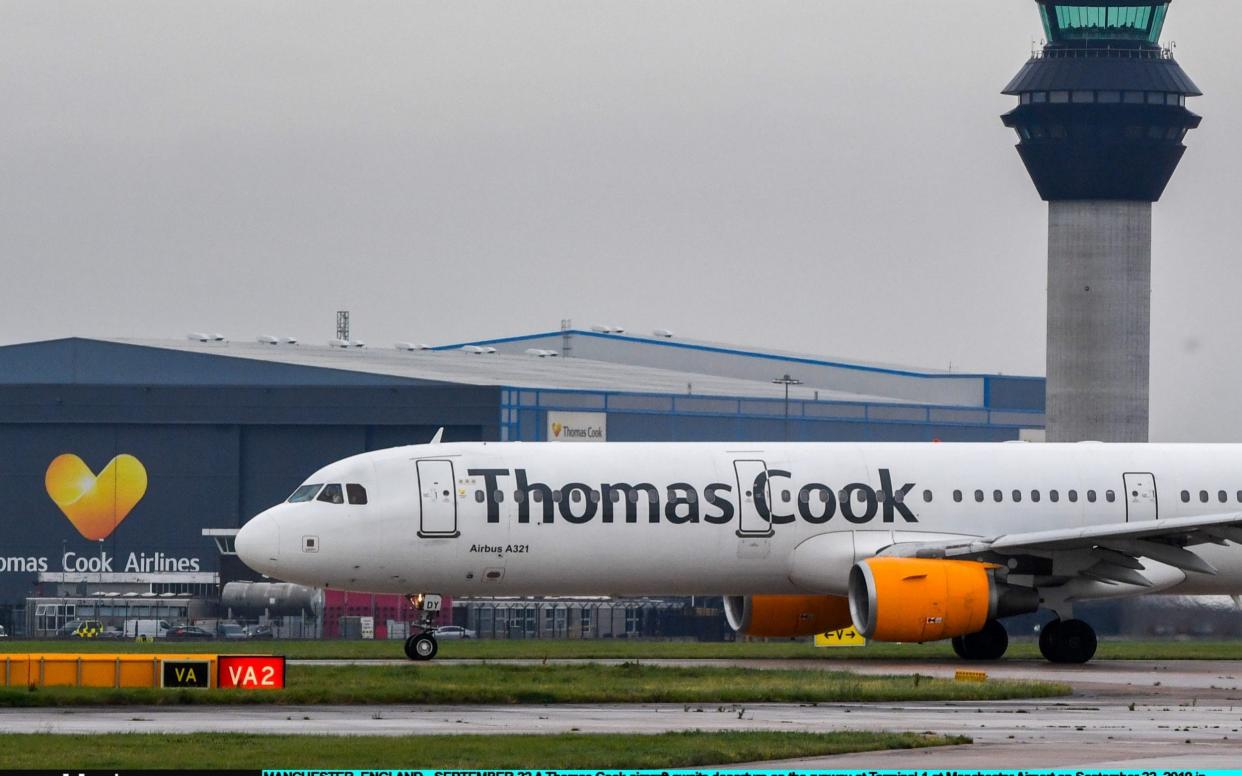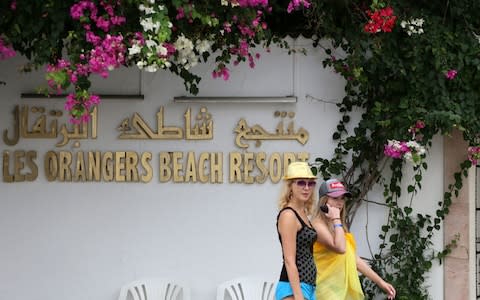Rescue planes line up to bring home 'stranded' Thomas Cook holidaymakers

A slew of empty aircraft were on Sunday night making their way towards British shores as hopes began fading for iconic British travel agent Thomas Cook.
Talks between executives from the 178-year-old company, its banks and shareholders continued late on Sunday evening in a desperate scramble to obtain an eleventh-hour stay of execution.
Meanwhile, planes were flying across the Atlantic and being prepared at airports as the final pieces to the country’s biggest peacetime repatriation were put in place.
Banking insiders said that, if the company were to collapse, administrators could be appointed between midnight and 4am on Monday morning.
"Once these things begin to unwind, there is very little to stop them unwinding," one source close to the talks told The Daily Telegraph.

An estimated 600,000 Thomas Cook customers are currently abroad, 150,000 of whom are Britons.
Tourists staying at the Les Orangers resort in Tunisia were among the first to suffer the consequences of the operator’s potential failure, finding themselves barricaded inside by armed guards as staff demanded they cough up thousands in unpaid bills.
Shaun Holmes, 30, from Derby, told the Telegraph: “They wouldn't even let us go to the shop this morning.
“They had people by the doors, guarding the doors. Police were on the outside. They were stopping coaches and everything from taking us out. They were being turned around.
"The staff were manhandling some guests and fighting.”
Others who were due to fly out to the resort were left in limbo after Thomas Cook said it would not be sending any new arrivals to Les Orangers and that customers would be offered a different hotel.

But as the operator sought to reassure customers, contingency plans for the operator’s imminent collapse swung into action.
Some 11 aircraft were understood to have been parked at Gatwick Airport, primed to be sent to pick up customers.
These include a Boeing 747 Jumbo Jet and an Airbus A380 - the world’s largest commercial passenger plane .
Meanwhile, two empty Eastern Airlines Boeing 767 planes were spotted refuelling in Ireland en route to the UK as well as a Malaysia A380 bound for Thomas Cook’s hub at Manchester Airport.
Thomas Cook continued to tell customers throughout Sunday that “all our package holidays are fully Atol protected”.
Similar to other travel agents, the company decided to remove Atol-protection, a levy of £2.50 per flight that is passed onto customers, from its flight-only bookings. As the travel industry lifeboat, Atol protection ensures that customers will be protected in the event of an insolvency.
On Sunday morning Foreign Secretary Dominic Raab pledged that no Thomas Cook passengers would be stranded. Responding to requests from the company and pressure from trade unions, Mr Raab played down the prospect of a government rescue, saying that ministers would not “step in” unless there was “a good strategic national interest”.

Non-Atol customers may be billed for their return trip, however.
“If they are not protected, the will normally be given a form to fill out their details and the Government, through the Department for Transport, will ask them to pay for it,” said Alan Bowen of the Association of Atol Companies.
James Daley of Fairer Finance said: “If they [passengers] were flight only - then they don’t have any statutory protection.
“[But] if the government is involved, it’s hard to see passengers being billed.”
Mr Bowen said that while the relevant part of the £60m cost of the Monarch failure had not been passed onto non-Atol customers during its repatriation effort in 2017, the scale of the potential Thomas Cook airlift may prompt the Government to take a different approach.
Estimates put the cost of Operation Matterhorn at £600m. “I suspect this time they will look at alternative ways of doing it," Mr Bowen said. These could include forcing Monarch customers to fill out a form with contact details saying whether they are flight-only or not, he added.

 Yahoo News
Yahoo News 
